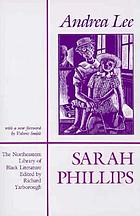"What just happened?" I wondered when I finished this episodic novel. Why did she put the last story first? Although the book left me unsettled it was a moving read. Ms. Lee can write. In broad terms this is a coming of age story about a light-skinned black girl/woman coming of age, from her childhood as a civil rights preacher's kid attending a Quaker school, integrating a private school, going to Harvard, and then doing the ex-pat thing in Paris.
One part I loved was her refusal to get baptized. In her father's church, you wait to hear the call. All the kids hear it eventually, but not stubborn Sarah Phillips. I could relate, remembering that same feeling of strong-willed anger mixed with shame mixed with fuck you mixed with loneliness mixed with pride.
The second quote I include here is so you can see an example of Ms. Lee's way with words. I love "eccentric-haired," and "energetic nonchalance" is a perfect descriptor of the "color blind" approach of the liberals of my childhood.
What I'd been doing, in fact--what I did every morning--was reading. ... I would read with the kind of ferocious appetite that belongs only to garden shrews, bookish children, and other small creatures who need double their weight in nourishment daily. p.31
This balance was upset when I entered the Prescott seventh grade, a long-legged, eccentric-haired child of eleven--with a mouthful of braces--chafing in the regulation gray worsted tunic and white cotton blouse. I came from a family with a fixed optimism about the brotherhood of man, and I was fresh from the sheltered atmosphere of a tiny Quaker school where race and class were treated with energetic nonchalance. It astonished me considerably to discover a world in which lines were so clearly drawn, and in which I was the object of a discreet, relentless curiosity--a curiosity mingled with wariness on the part of some teachers, as if I were a very small unexploded bomb. p.53
